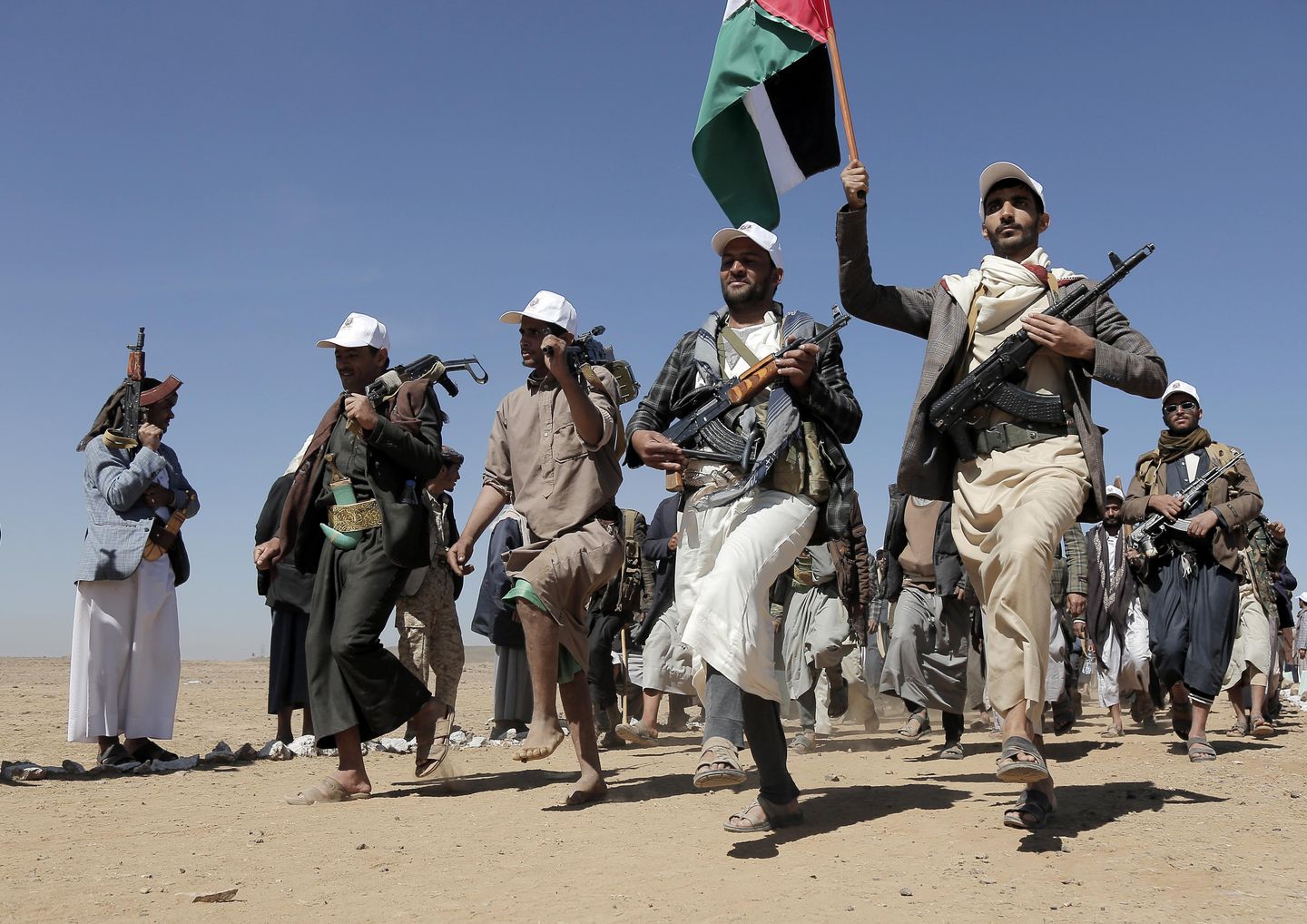The United States military conducted a targeted strike on Wednesday evening against Iran-backed Houthi rebels in Yemen, hitting multiple weapons storage facilities in an effort to degrade their ability to carry out attacks in the region. The strike comes amid escalating tensions in the Middle East, with the conflict in Yemen serving as a proxy battleground for regional powers.
The Houthis, who are aligned with Iran, have been engaged in a years-long conflict with the internationally recognized government of Yemen, which is supported by a coalition led by Saudi Arabia. The conflict has resulted in a devastating humanitarian crisis, with millions of Yemenis facing food insecurity, lack of access to clean water, and inadequate healthcare.
The U.S. strike on Wednesday evening targeted Houthi weapons storage facilities, which are believed to house a significant amount of weaponry, including missiles and drones. The goal of the strike was to degrade the Houthi’s ability to carry out attacks against neighboring countries, including Saudi Arabia, which has been the target of numerous Houthi missile and drone attacks in recent years.
The strike was reportedly carried out by U.S. forces in coordination with the Saudi-led coalition, which has been conducting a military campaign against the Houthis since 2015. The U.S. has provided logistical and intelligence support to the coalition, but this strike marks a more direct involvement in the conflict.
The decision to strike the Houthi weapons storage facilities comes as the Biden administration seeks to reevaluate U.S. military involvement in the region. President Biden has pledged to end U.S. support for the Saudi-led coalition’s offensive operations in Yemen, citing concerns about civilian casualties and the worsening humanitarian crisis.
However, the administration has also expressed a commitment to countering Iran’s destabilizing activities in the region, including its support for the Houthis in Yemen. The strike on Wednesday evening signals a willingness to take direct action against Iran-backed forces in the region, while also seeking to avoid becoming further entangled in the conflict.
The strike on the Houthi weapons storage facilities comes at a delicate time in U.S.-Iran relations, with the Biden administration seeking to revive the 2015 nuclear deal with Iran. The deal, known as the Joint Comprehensive Plan of Action (JCPOA), sought to limit Iran’s nuclear program in exchange for sanctions relief. However, former President Trump withdrew the U.S. from the deal in 2018, leading to increased tensions between the two countries.
The Biden administration has signaled its willingness to reengage with Iran on the nuclear issue, but has also expressed concerns about Iran’s regional activities, including its support for proxy forces in Yemen, Syria, and Lebanon. The strike on the Houthi weapons storage facilities is likely intended to send a message to Iran that the U.S. will not tolerate its support for destabilizing activities in the region.
The strike on the Houthi weapons storage facilities is also likely to have broader implications for the conflict in Yemen. The Houthis have been emboldened by their ability to launch missile and drone attacks against neighboring countries, including Saudi Arabia. By degrading their weapons storage facilities, the U.S. and its allies hope to limit the Houthi’s ability to carry out such attacks, thereby reducing the overall level of violence in the conflict.
However, the strike is also likely to further exacerbate tensions in the region, with the potential for retaliatory attacks by the Houthis or their backers. The conflict in Yemen has already resulted in thousands of civilian casualties and widespread destruction, and any escalation in violence is likely to have devastating consequences for the Yemeni people.
The strike on the Houthi weapons storage facilities is just the latest development in a long and complex conflict that shows no signs of abating. The war in Yemen has become a humanitarian catastrophe, with millions of people in need of humanitarian assistance and protection. The conflict has also created space for extremist groups, including al-Qaeda and ISIS, to operate in the country, further destabilizing an already volatile region.
The international community has called for a peaceful resolution to the conflict in Yemen, with the United Nations leading efforts to broker a ceasefire and political settlement. However, progress has been slow, with both sides showing little willingness to compromise and continuing to engage in hostilities.
The U.S. strike on the Houthi weapons storage facilities is likely to further complicate efforts to find a peaceful solution to the conflict. While the goal of degrading the Houthi’s weapons capabilities is understandable, the strike also risks escalating the conflict and increasing the suffering of the Yemeni people.
In conclusion, the U.S. strike on the Iran-backed Houthi rebels in Yemen represents a significant escalation in the conflict and highlights the complexities of the situation in the Middle East. The strike is likely intended to send a message to Iran about its support for destabilizing activities in the region, while also seeking to degrade the Houthi’s ability to carry out attacks against neighboring countries.
However, the strike also risks further exacerbating the conflict in Yemen and increasing the suffering of the Yemeni people. The international community must redouble its efforts to find a peaceful solution to the conflict, one that addresses the root causes of the conflict and ensures the protection of civilians. Only through dialogue and diplomacy can the cycle of violence in Yemen be broken and a lasting peace achieved.









